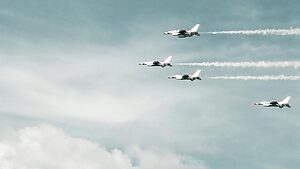Prozac, the brand name for fluoxetine, is a widely prescribed antidepressant medication that belongs to the selective serotonin reuptake inhibitor (SSRI) class. It has helped millions of people manage their mental health conditions, such as depression, obsessive-compulsive disorder (OCD), panic disorder, and bulimia nervosa. However, as with any prescription medication, there are concerns about the potential for addiction and misuse.
What is Prozac and How Does it Work?
Prozac is an SSRI that works by increasing the levels of serotonin, a neurotransmitter that plays a crucial role in regulating mood, sleep, appetite, and other bodily functions. By blocking the reuptake of serotonin in the brain, Prozac allows more of this neurotransmitter to be available, which can help alleviate symptoms of depression and other mental health disorders.
Doctors prescribe Prozac for various mental health conditions, and it has been proven effective in treating:
- Major depressive disorder
- Obsessive-compulsive disorder (OCD)
- Panic disorder
- Bulimia nervosa
Is Prozac Addictive?
Unlike many other prescription drugs, such as opioids or benzodiazepines, Prozac is not considered highly addictive. SSRIs like Prozac do not produce the euphoric effects that are often associated with addictive substances, and they do not typically lead to cravings or compulsive use.
However, it is essential to note that while Prozac may not be addictive in the traditional sense, it can still lead to physical dependence. When taken regularly, the body adapts to the presence of the drug, and sudden discontinuation can result in withdrawal symptoms, such as:
- Dizziness
- Nausea
- Headaches
- Fatigue
- Irritability
- Sleep disturbances
- Electric shock-like sensations (often referred to as “brain zaps”)
These withdrawal symptoms, collectively known as SSRI discontinuation syndrome, can be uncomfortable and distressing. To avoid these symptoms, it is crucial to work with a healthcare professional when stopping or changing the dosage of Prozac. A gradual tapering schedule can help minimize the risk of withdrawal and ensure a safer, more comfortable transition.
The Dangers of Prozac Misuse and Abuse
Although Prozac is not highly addictive, misusing or abusing the medication can lead to serious side effects and health risks. Some people may attempt to misuse Prozac by taking higher doses than prescribed, using it for non-medical purposes, or combining it with other substances, such as alcohol or illicit drugs.
Misusing or abusing Prozac can cause:
- Serotonin syndrome: A potentially life-threatening condition caused by excessive serotonin levels in the body, leading to symptoms like agitation, confusion, rapid heartbeat, high fever, and even seizures.
- Increased risk of suicidal thoughts and behaviors, especially in young adults and children.
- Worsening of depression or anxiety symptoms.
- Interactions with other medications, leading to adverse effects.
- Overdose, which can result in severe symptoms and potentially fatal consequences.
Additionally, long-term misuse of Prozac can lead to tolerance, meaning that higher doses are needed to achieve the desired effects. This can further increase the risk of adverse side effects and health complications.
Prescription Drug Addiction: A Growing Concern
While Prozac itself may not be highly addictive, misusing any prescription medication can lead to the development of a substance use disorder. Prescription drug addiction is a growing concern in the United States, with millions of people misusing medications like opioids, benzodiazepines, and stimulants.
Misusing prescription drugs can have severe consequences, including:
- Increased risk of overdose and death
- Long-term health problems, such as liver and kidney damage
- Strained relationships with family and friends
- Financial difficulties due to the cost of obtaining and using the drugs
- Legal troubles, including arrests and incarceration
Recognizing the signs of prescription drug addiction is crucial for seeking timely help and support. Some common signs include:
- Taking higher doses than prescribed
- Obsessive thoughts about obtaining and using the drug
- Continuing to use the drug despite negative consequences
- Neglecting responsibilities at work, school, or home
- Engaging in risky behaviors while under the influence
- Experiencing withdrawal symptoms when attempting to quit
Seeking Help at Texas Recovery Centers
If you or a loved one is struggling with prescription drug addiction, including Prozac misuse or abuse, it is essential to seek professional help. At Texas Recovery Centers, we offer comprehensive addiction treatment services tailored to the unique needs of each individual.
Our evidence-based programs include:
- Medical detox: A supervised process to safely manage withdrawal symptoms and ensure a comfortable transition to sobriety.
- Inpatient and outpatient treatment: Structured programs that provide therapy, counseling, and support in a safe and nurturing environment.
- Individual and group therapy: Evidence-based therapies, such as cognitive-behavioral therapy (CBT) and dialectical behavior therapy (DBT), to address the underlying causes of addiction and develop coping skills.
- Family counseling: Support and education for family members to help them understand addiction and learn how to best support their loved one’s recovery.
- Aftercare planning and support: Ongoing resources and support to help maintain sobriety and prevent relapse after completing treatment.
Our experienced and compassionate team of addiction specialists is dedicated to helping you overcome your substance use disorder and achieve lasting recovery. We understand the challenges of addiction and are here to support you every step of the way.
Get Help Today
Don’t let prescription drug addiction control your life any longer. Take the first step towards recovery today by calling Texas Recovery Centers at 888-354-2194. Our admissions specialists are available 24/7 to answer your questions, provide guidance, and help you start your journey to a healthier, happier life.
Remember, seeking help is a sign of strength, not weakness. With the right support and treatment, you can break free from the grip of addiction and build a brighter future for yourself and your loved ones. Texas Recovery Centers is here to help you every step of the way.













